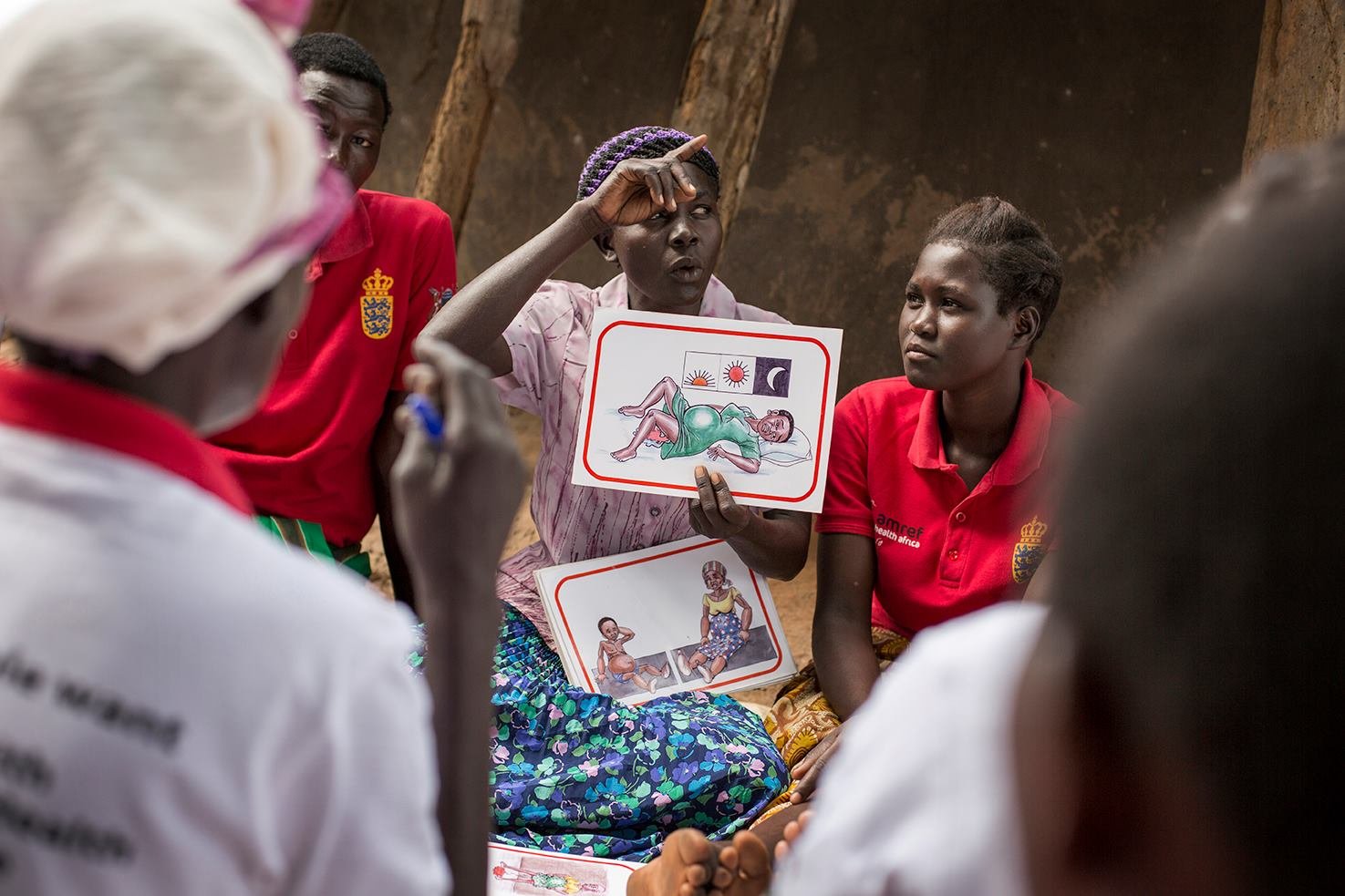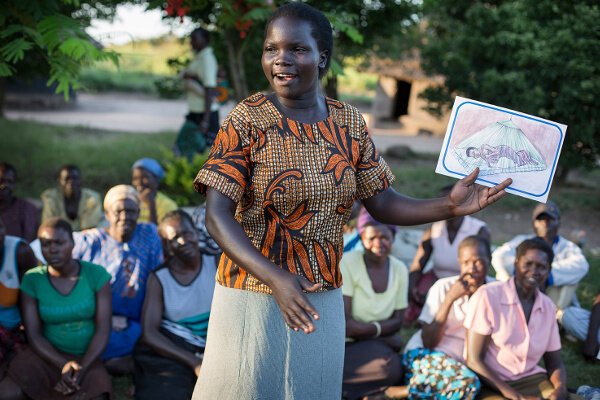
Our Group Approach:
Participatory Learning and Action (PLA)
About
Our flagship approach was our community health group methodology – known as Participatory Learning and Action (PLA). It is underpinned by the principle that health promotion is most effective if it involves dialogue and problem solving, rather than message-giving.
PLA groups identify problems and evaluate locally-resourced solutions through a four-phase action cycle:
Identify the most critical health challenges faced by the community;
Design local solutions;
Lead their communities to implement these solutions; and
Evaluate their results.
PLA groups achieve their aims through structured meetings, facilitated by trained lay or professional individuals from the local community.
PLA has been extensively tested and researched in the area of maternal and newborn health (MNH) – we often therefore refer to PLA-MNH to refer specifically to our work in this context.
The PLA-MNH approach is recommended by the World Health Organization (WHO), particularly in rural settings.
It leads to increased awareness of family planning approaches and sexually transmitted infections, leading to increased use of contraception. It improves women’s understanding of danger signs in pregnancy and childbirth, empowering them to take appropriate action.
Group attendees are up to 42% more likely to attend antenatal visits, up to 60% more likely to give birth in the presence of a skilled birth attendant, and up to 44% more likely to seek postnatal care within seven days of giving birth.
PLA groups:
Our Groups empowered communities to identify and overcome barriers, through various local solutions, including bicycle ambulances, awareness campaigns, village saving and loan groups, breastfeeding clubs and vegetable gardening and sharing.
Are open to everyone
The uptake is similar across socioeconomic strata, since the groups are perceived to be open to everyone and use simple approaches that interest and engage women from different backgrounds.
Are accessible to women with disabilities
The groups are accessible to women with disabilities, with no significant differences found between the percentage of disabled and non-disabled women that had ever attended a group.
Positively affects people of all socioeconomic strata
The equitable access to interventions leads to improvements in neonatal mortality, regardless of socioeconomic status. Following the implementation of our PLA groups, neonatal mortality rates among the poorest populations can decrease by 50–63%.
Reduce the equity gap
Neonatal mortality in the most rural and remote populations have been found to reduce at a faster rate than the least poor, thereby reducing the equity gap in mortality.
Are sustainable
Groups unite communities and encourage them to take ownership of their local health challenges. They are robust: research shows 77–95% of groups remain active 1 year after the end of the project. They have long-standing benefits, continuing to have reduced neonatal mortality for 3–6 years.

Our evidence
There is extensive evidence supporting PLA-MNH groups:
Effective: Seven cluster randomised controlled trials and a meta-analysis have shown that PLA-MNH can reduce maternal mortality by 49% and neonatal mortality by 33% when at least a third of pregnant women attend a group.
Cost-effective: By WHO standards, with a cost of between $1,457 to $8,670 per neonatal death averted.
Equitable: It is pro-poor and can contribute to an equitable reduction in neonatal mortality across socio-economic strata.
Sustainable: Up to 80% of groups remain active beyond the end of project funding.
Scalable: There is evidence PLA-MNH can be scaled through community health worker structures. In India, delivered through frontline health workers supported by the Ministry of Health, PLA-MNH reduced neonatal mortality by 24% (26% in the poorest quintiles) at a cost of $385 per death averted.
Our experience
Women and Children First have worked for over 20 years in delivering successful projects implementing the PLA-MNH approach.
We have also been working with partners to use our community group approach to address other health problems – such as supporting young women with their sexual and reproductive health; improving access to family planning; supporting people living with disabilities; improving children’s nutrition; and preventing accidental childhood injuries, such as drowning.






